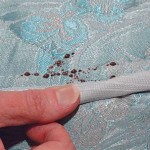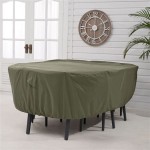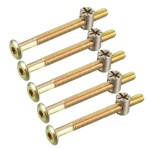Spray To Stop Puppies Chewing Furniture: A Comprehensive Guide
Puppyhood is a delightful yet challenging phase, often marked by excessive chewing. This behavior, while natural, can become destructive when directed towards furniture and other household items. To mitigate this, many pet owners turn to anti-chew sprays, designed to deter puppies from gnawing on inappropriate objects. This article provides a detailed exploration of these sprays, their ingredients, application, and effectiveness, as well as alternative strategies for managing puppy chewing.
Chewing is an innate behavior for puppies. It serves several key purposes during their development. First, it helps alleviate the discomfort associated with teething. As new teeth erupt, the gums become sore and inflamed, and chewing provides a counter-pressure that can relieve the pain. Second, chewing allows puppies to explore their environment and learn about different textures and tastes. This is particularly important during the socialization period when they are developing an understanding of the world around them. Third, chewing can be a way for puppies to relieve stress and boredom. Just like humans, puppies can experience anxiety and frustration, and chewing can serve as a healthy outlet for these emotions. Finally, chewing strengthens the jaw muscles and helps to keep teeth clean.
Despite its natural origins, uncontrolled chewing can lead to significant damage within the home. Furniture, electrical cords, clothing, and even structural elements of the house can become targets for a puppy's eager jaws. This not only results in financial costs for repairs and replacements but also poses potential safety hazards, especially if the puppy chews on electrical cords or ingests harmful materials.
Anti-chew sprays offer a potential solution to this problem. These sprays are formulated with ingredients that have an unpleasant taste or odor to deter puppies from chewing on treated surfaces. They are generally considered a safe and humane way to redirect chewing behavior, but their effectiveness can vary depending on the individual puppy, the specific product, and the consistency of application. Furthermore, anti-chew sprays are most effective when used in conjunction with other training and management techniques.
Understanding Anti-Chew Spray Ingredients and Functionality
The effectiveness of an anti-chew spray hinges on its ingredients. These ingredients are typically bitter or pungent substances that puppies find unpalatable, discouraging them from continuing to chew. Common ingredients include denatonium benzoate, isopropyl alcohol, and extracts from citrus fruits or hot peppers. It is critical to acknowledge that while these ingredients are generally considered safe for topical use, they can cause irritation if ingested in large quantities. Therefore, it is imperative to follow the manufacturer's instructions carefully and to supervise the puppy after application, particularly during the initial exposure.
Denatonium benzoate, often referred to as Bitrex, is one of the most widely used bittering agents in anti-chew sprays. It is considered the most bitter substance known to humans and animals. Its intense bitterness makes it effective at deterring chewing, even at low concentrations. Isopropyl alcohol, also known as rubbing alcohol, is another common ingredient. It has a strong, pungent odor and a bitter taste that is unpleasant to most animals. Some sprays utilize natural ingredients, such as citrus extracts (lemon, orange, grapefruit) or capsaicin (the active component in chili peppers), to create a deterrent effect. These natural options are often preferred by pet owners who are concerned about the potential risks associated with synthetic chemicals.
It is crucial to carefully read the product label to determine the specific ingredients and ensure that the spray is safe for use around pets and children. Some products may contain allergens or ingredients that could be harmful if ingested. If there are any concerns regarding the safety of a particular product, consulting a veterinarian is recommended before use.
The functionality of an anti-chew spray depends on proper application. The spray should be applied evenly to the surfaces that the puppy tends to chew on, ensuring that all areas are adequately covered. It is important to test the spray on an inconspicuous area first to ensure that it does not damage or discolor the surface. The spray should be reapplied regularly, especially after cleaning or if the puppy is observed chewing on the treated area again. The frequency of reapplication will vary depending on the product and the puppy's chewing habits.
It's also important to note that puppies can sometimes become accustomed to the taste or odor of an anti-chew spray over time. If this happens, it may be necessary to switch to a different product with a different combination of ingredients. Variety can help to maintain the effectiveness of the deterrent and prevent the puppy from becoming desensitized.
Effective Application Techniques and Safety Precautions
The effectiveness of anti-chew spray is directly related to the method of application. Before applying the spray, it is essential to thoroughly clean the surface being treated. This removes any existing odors or tastes that might be attracting the puppy to chew on the object. Any cleaning products used should be safe for pets and should not leave any residue that could be harmful if ingested.
Once the surface is clean, the anti-chew spray should be applied evenly and liberally. It is important to ensure that all areas that the puppy is likely to chew on are covered. For furniture, this may include legs, corners, edges, and upholstery. For electrical cords, the spray should be applied carefully to avoid damaging the insulation. It is generally recommended to unplug electrical cords before applying the spray.
After applying the spray, allow it to dry completely before allowing the puppy to access the treated area. This will prevent the puppy from ingesting the spray before it has had a chance to take effect. It will also help to prevent the spray from transferring to the puppy's fur or paws, which could lead to irritation or ingestion if the puppy licks itself.
Regular reapplication is crucial for maintaining the effectiveness of the anti-chew spray. The frequency of reapplication will depend on several factors, including the specific product, the puppy's chewing habits, and the type of surface being treated. As a general rule, it is recommended to reapply the spray every few days or whenever the puppy is observed chewing on the treated area again.
Safety precautions are paramount when using anti-chew sprays. Always read and follow the manufacturer's instructions carefully. Avoid spraying the product directly into the puppy's eyes, nose, or mouth. If the spray comes into contact with the puppy's skin or eyes, rinse thoroughly with water. Keep the spray out of reach of children and store it in a safe place away from food and other household products.
Supervise the puppy closely after applying the spray, especially during the initial exposure. This will allow you to observe the puppy's reaction to the spray and ensure that it is not causing any adverse effects. If the puppy shows signs of irritation, such as excessive drooling, vomiting, or diarrhea, discontinue use of the product and consult a veterinarian.
Alternative Strategies for Managing Puppy Chewing
While anti-chew sprays can be a useful tool for managing puppy chewing, they are most effective when used in combination with other training and management techniques. Relying solely on anti-chew sprays without addressing the underlying causes of the chewing behavior is unlikely to yield long-term results. A multifaceted approach that addresses the puppy's physical, mental, and emotional needs is essential for preventing destructive chewing.
Providing an abundance of appropriate chew toys is crucial. Offer a variety of toys with different textures and materials to keep the puppy engaged and satisfied. Rotate the toys regularly to prevent boredom and maintain the puppy's interest. Puzzle toys that dispense treats can also be a great way to keep puppies occupied and mentally stimulated.
Sufficient exercise is essential for reducing chewing behavior. Puppies with pent-up energy are more likely to engage in destructive activities, including chewing. Ensure that the puppy gets plenty of physical activity each day, such as walks, playtime, and training sessions. The amount of exercise required will vary depending on the puppy's age, breed, and energy level.
Mental stimulation is equally important. Puppies need mental challenges to keep them entertained and prevent boredom. Training sessions, puzzle toys, and interactive games can all provide valuable mental stimulation. Even simple activities like hiding treats around the house can help to keep the puppy's mind engaged.
Proper crate training can also be a helpful tool for managing chewing behavior. When properly introduced, a crate can provide a safe and comfortable den for the puppy. When the puppy is unsupervised, it can be confined to the crate with a safe chew toy to prevent destructive chewing. However, it is important to avoid using the crate as punishment, as this can create negative associations and anxiety.
Redirecting chewing behavior is another important technique. Whenever the puppy is observed chewing on an inappropriate object, gently redirect its attention to an appropriate chew toy. Praise and reward the puppy for chewing on the toy. This will help to reinforce the desired behavior and discourage the puppy from chewing on inappropriate objects.
If the puppy's chewing behavior is excessive or persistent, it is important to consult with a veterinarian or a certified professional dog trainer. They can help to identify any underlying medical or behavioral issues that may be contributing to the problem and recommend appropriate treatment strategies.
Implementing these alternative strategies in conjunction with the use of anti-chew sprays offers a holistic approach to managing puppy chewing, contributing to a harmonious and damage-free environment for both the puppy and its owner.

Bitter Cherry Dog Deterrent Spray Helps Stop Chewing And Biting Out Petcare

Fido S Chew Stop Bitter Spray And Training Aid For Puppies Dogs 500ml Petbarn

Fido S Chewstop Bitter Spray Stop Dogs Chewing Furniture Shoes

Facaimo No Chew Spray For Dogs Dog Bitter Chewing Free Natural Pet Corrector Safe Formula Stop From Paws Furniture Walmart Com

Fido S Stop Chew Spray 200ml Pet Connect

Stop Bloody Licking Spray Natural Bitter Anti Chew Pets Calm Down

Anti Chew Spray For Dogs Indoor Furniture Protection Effective Stop Biting Ebay

Anti Bite Spray Dajak 521239 Flamingo Pet Products

Yegbong No Chew Spray For Dogs Dog Anti Natural Pet Corrector Safe Formula Stop From Chewing Paws Furniture Gnawing

Bob Martin Chew Deterrent 300 Ml








